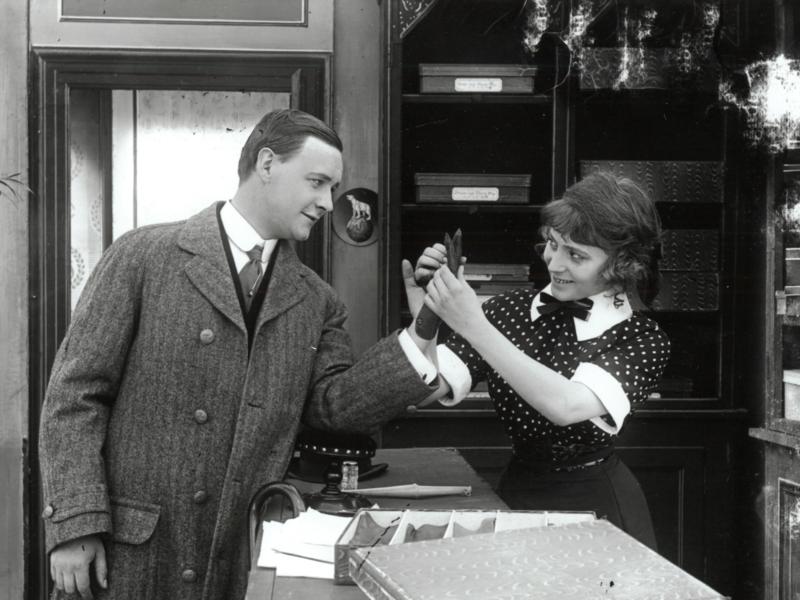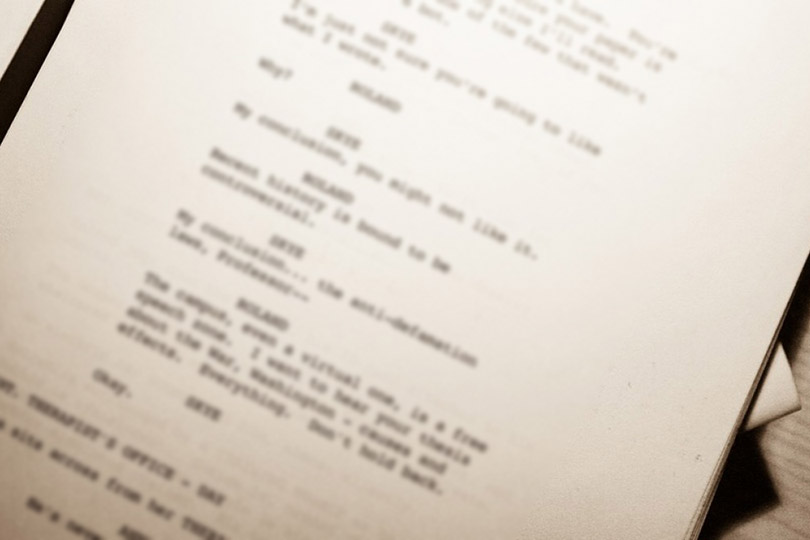enda
Film
The Girl Behind the Counter
August Blom, Denmark, 1911
52 min.DK/FeatureErotic melodramaSilent films

A wealthy young man, Edgar, sees a shopgirl, Ellen, and is immediately attracted to her. He buys her flowers. They meet next Sunday and, presumably, often thereafter. Three months later Ellen is pregnant. The couple decide to marry, and Edgar tells his mother. His father convinces him not to marry Ellen and sends him away to visit friends in the country. The daughter of the family he visits, Lily, gets him to write to Ellen when she finds out about her. Edgar's fahter, however, has convinced Ellen's former employer, to whom the letters have been sent, to turn them over to him. When Edgar gets no reply from Ellen, he secretly returns to the city. The baby is born and Ellen dies shortly after. Lily visits from the country, and Edgar sees a notice of Ellen's death in the newspaper. Edgar and Lily go to the hospital to claim the baby, planning also to marry. (Plot summary from: Ron Mottram, The Danish Cinema before Dreyer (1988))
An excellent example of Nordisk's early feature production and of the "social drama" genre that pioneering film sociologist Emilie Altenloh in 1914 identified as the distinctive contribution of Danish cinema, showing "a woman's struggle between her natural, femine-sensual instincts and social conditions conflicting with them". Clara Wieth (née Rasmussen, later Pontoppidan) gives an absolutely delightful performance as the sweet, flirtatious shopgirl who comes to grief, and the way the film's sympathy is very clearly on her side is quite remarkable. August Blom's staging is unobtrusive but carefully done.
An excellent example of Nordisk's early feature production and of the "social drama" genre that pioneering film sociologist Emilie Altenloh in 1914 identified as the distinctive contribution of Danish cinema, showing "a woman's struggle between her natural, femine-sensual instincts and social conditions conflicting with them". Clara Wieth (née Rasmussen, later Pontoppidan) gives an absolutely delightful performance as the sweet, flirtatious shopgirl who comes to grief, and the way the film's sympathy is very clearly on her side is quite remarkable. August Blom's staging is unobtrusive but carefully done.
| Original title | Ekspeditricen |
|---|---|
| Danish title | Ekspeditricen |
| International titles | Jugendsünde, Dyrköpt lycka, Ungdom och lättsinne |
| Other titles | Ungdom og letsind, Ungdomssynd |
| Director | August Blom |
| Screenplay | Lau Lauritzen Sr. |
| Appearance | Thorkild Roose, Ella la Cour, Carlo Wieth, Clara Wieth |
| Production country | Denmark |
| Domestic distribution | Fotorama |
| Technical info | 980 meter, 35 mm, Normal, Black/white, Silent |
| Danish theatrical release | 12.08.1911 |
| Cinemas | Panoptikon |
Companies |
|
| Production company | Nordisk Films Kompagni |
| Domestic distribution | Fotorama |
|
|
|
Direction |
|
| Direction | August Blom |
|
|
|
Script |
|
| Script | Lau Lauritzen Sr. |
|
|
|
Appearance |
|
| Geheimraaden | Thorkild Roose |
| Geheimraadens frue | Ella la Cour |
| Edgar, geheimraadens søn | Carlo Wieth |
| Ebba | Clara Wieth |
| Lily | Zanny Petersen |
| Læge | Lauritz Olsen |
| Appearance | Henny Lauritzen |
| Appearance | Elna From |
|
|
|

